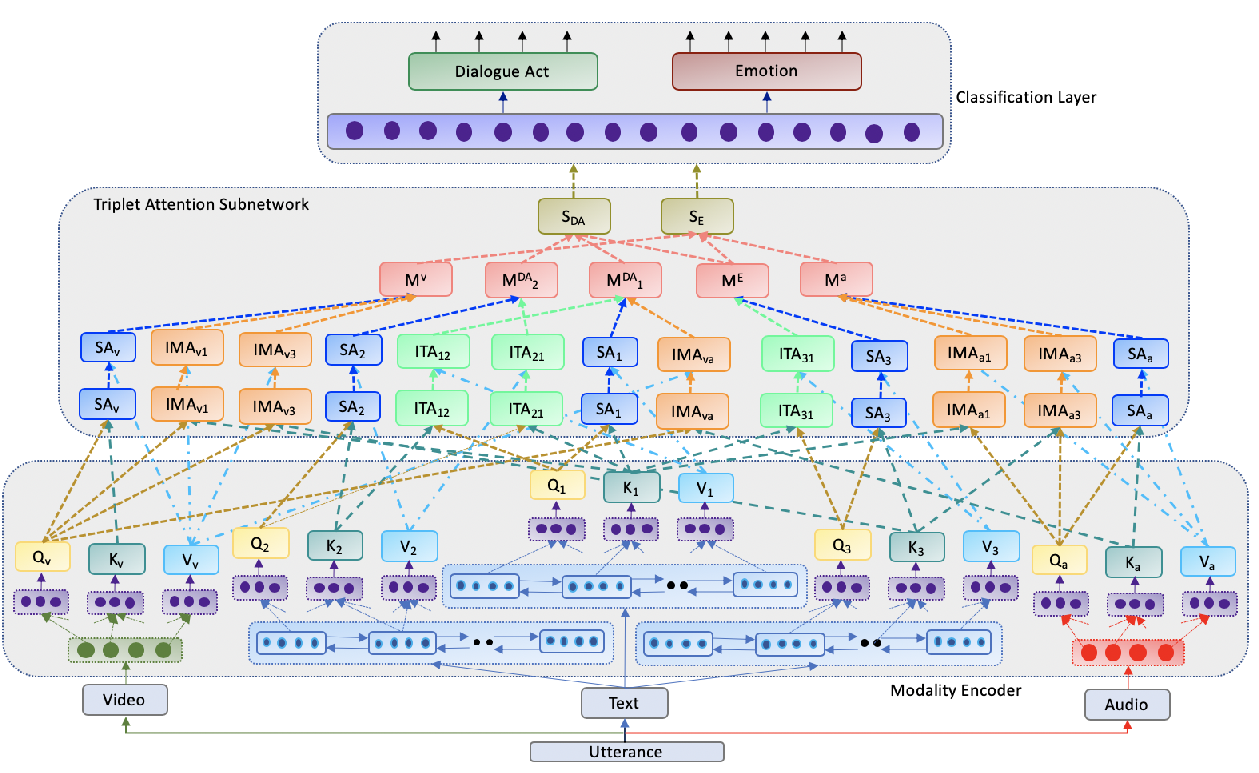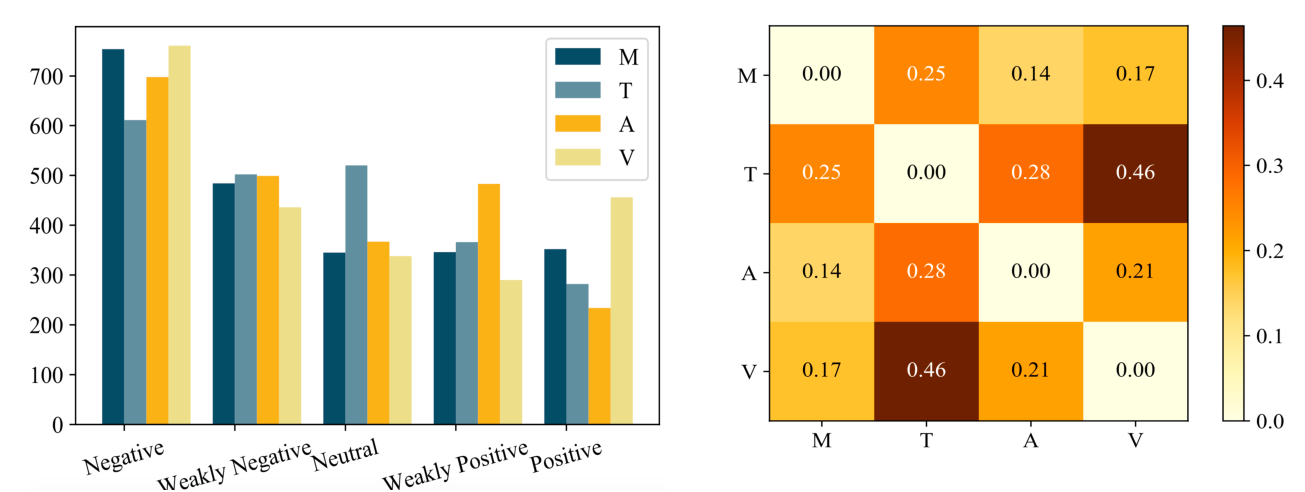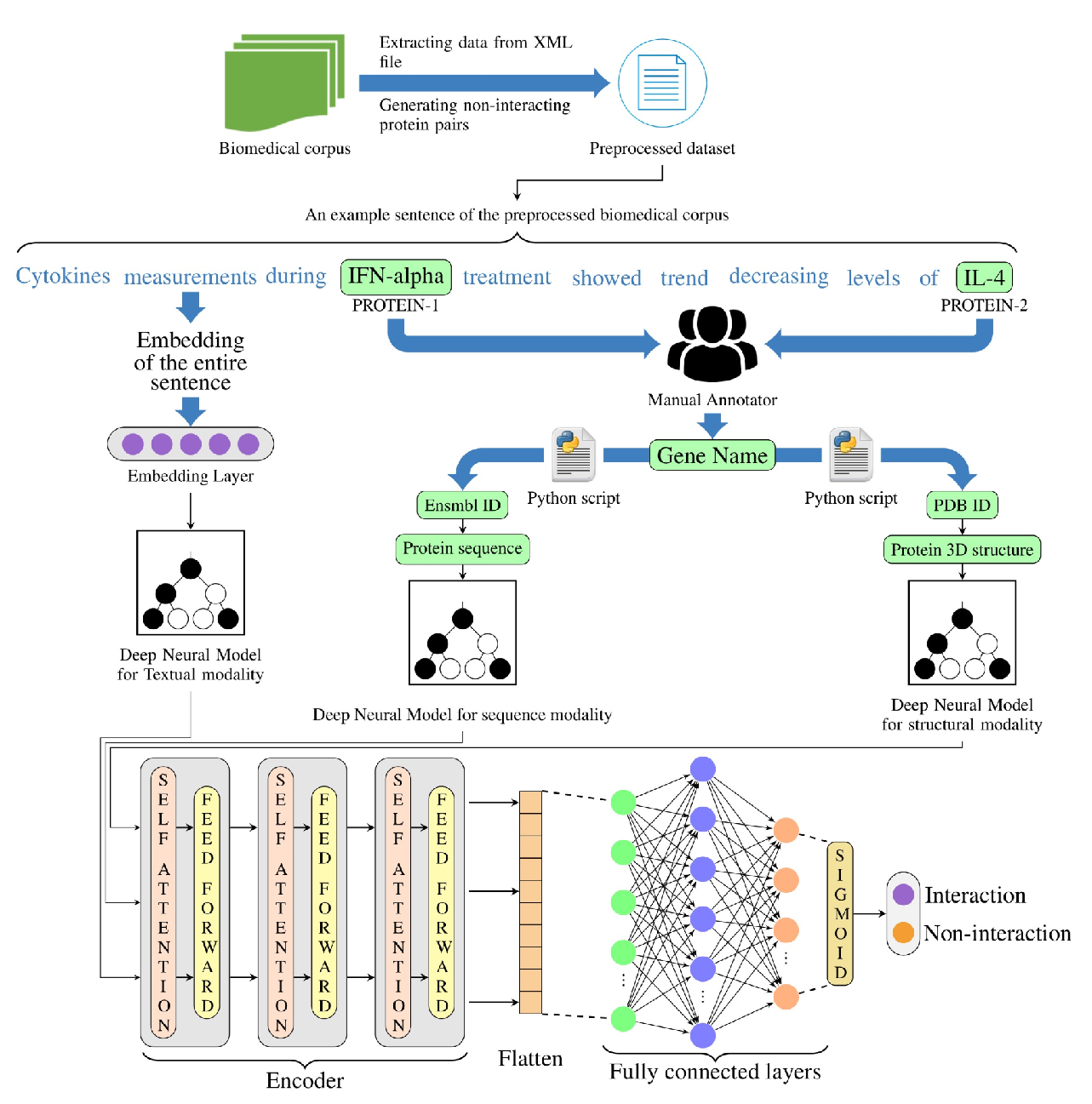Sentiment and Emotion help Sarcasm? A Multi-task Learning Framework for Multi-Modal Sarcasm, Sentiment and Emotion Analysis
Dushyant Singh Chauhan, Dhanush S R, Asif Ekbal, Pushpak Bhattacharyya
Speech and Multimodality Long Paper
Session 7B: Jul 7
(09:00-10:00 GMT)

Session 8B: Jul 7
(13:00-14:00 GMT)

Abstract:
In this paper, we hypothesize that sarcasm is closely related to sentiment and emotion, and thereby propose a multi-task deep learning framework to solve all these three problems simultaneously in a multi-modal conversational scenario. We, at first, manually annotate the recently released multi-modal MUStARD sarcasm dataset with sentiment and emotion classes, both implicit and explicit. For multi-tasking, we propose two attention mechanisms, viz. Inter-segment Inter-modal Attention (Ie-Attention) and Intra-segment Inter-modal Attention (Ia-Attention). The main motivation of Ie-Attention is to learn the relationship between the different segments of the sentence across the modalities. In contrast, Ia-Attention focuses within the same segment of the sentence across the modalities. Finally, representations from both the attentions are concatenated and shared across the five classes (i.e., sarcasm, implicit sentiment, explicit sentiment, implicit emotion, explicit emotion) for multi-tasking. Experimental results on the extended version of the MUStARD dataset show the efficacy of our proposed approach for sarcasm detection over the existing state-of-the-art systems. The evaluation also shows that the proposed multi-task framework yields better performance for the primary task, i.e., sarcasm detection, with the help of two secondary tasks, emotion and sentiment analysis.
You can open the
pre-recorded video
in a separate window.
NOTE: The SlidesLive video may display a random order of the authors.
The correct author list is shown at the top of this webpage.
Similar Papers
Towards Emotion-aided Multi-modal Dialogue Act Classification
Tulika Saha, Aditya Patra, Sriparna Saha, Pushpak Bhattacharyya,

A Novel Graph-based Multi-modal Fusion Encoder for Neural Machine Translation
Yongjing Yin, Fandong Meng, Jinsong Su, Chulun Zhou, Zhengyuan Yang, Jie Zhou, Jiebo Luo,

CH-SIMS: A Chinese Multimodal Sentiment Analysis Dataset with Fine-grained Annotation of Modality
Wenmeng Yu, Hua Xu, Fanyang Meng, Yilin Zhu, Yixiao Ma, Jiele Wu, Jiyun Zou, Kaicheng Yang,

